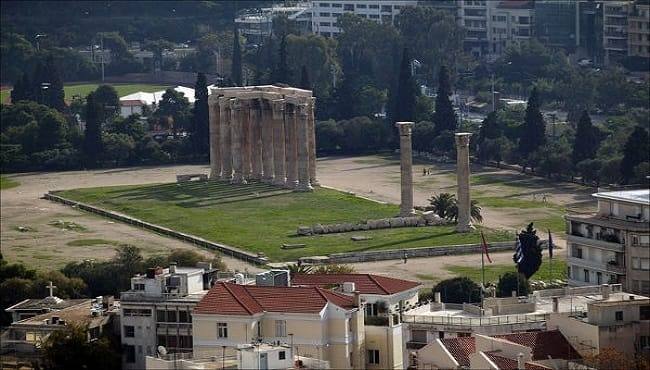(Nice question, Aphrodisia Xanthopoulos! You and Aziz Dida should get together and plot more questions; the Greece feed has been getting boring lately.)
OP’s question touches on the old dichotomy in Greek identity between Hellene and Romios (Roman); see for example Romios or Hellene? It’s a dichotomy that may be dying down now, as the Hellenic/West European/high identity is overtly winning out over the Romaic/East European/low identity, but it’s certainly not dead yet.
I take some contrarian delight at being at odds with other respondents; but then, my construction of Greekness is as idiosyncratic as—well, Ioannis Psycharis’.
So. When I go to Athens, I see a little bit of Byzantine stuff, because Athens was a small regional centre; but the preponderance of stuff you see that isn’t crappy concrete high-rises in Athens is Ancient marble. Partly because of historical whitewashing: a lot of post-Classical stuff got shoved out of the way, to allow the marble to gleam in isolation.
And the marble looks like some highly advanced spacemen dropped this stuff off and left. It doesn’t gel with the Modern Greek landscape; it’s something Alien.

In fact, that’s how Modern Greek folklore accounted for all this marble. Built by the pagan giants of yore, before they collapsed under their own weight. And the Franks are the giants’ kinfolk; that’s why they come from their countries and genuflect before those ruins.
When I go to Salonica, on the other hand, I see late Roman and Byzantine stuff all around. That’s historical whitewashing too: the Ottoman and Jewish past of the city were allowed to pass from sight. But the landscape is immediately more recognisable, even with 1700-year old brick:

This doesn’t look like something space aliens dropped off. This looks like something that I can recognise ancestors of mine as having played a part in.
So. In answer to your question, I pick B over A: Byzantium over Antiquity. The Ancients created something that everyone in the West inherited, and that the West made a point of emulating. But they feel remote, and they don’t feel like ours alone. The history of the past 1000 years, however, is a history we can recognise ourselves in.
Yes, yes, I’m sure most Greeks disagree. But that’s how I feel.